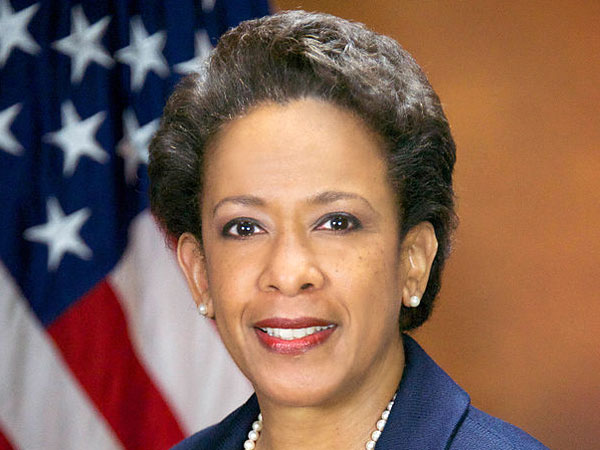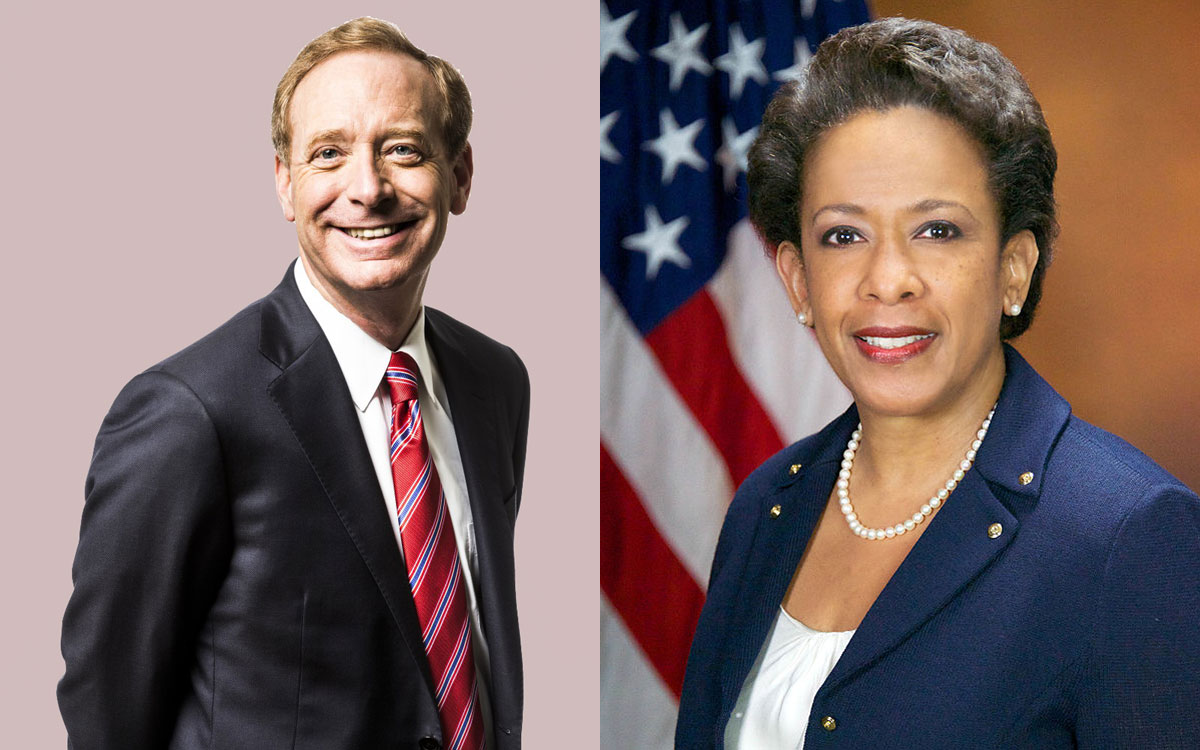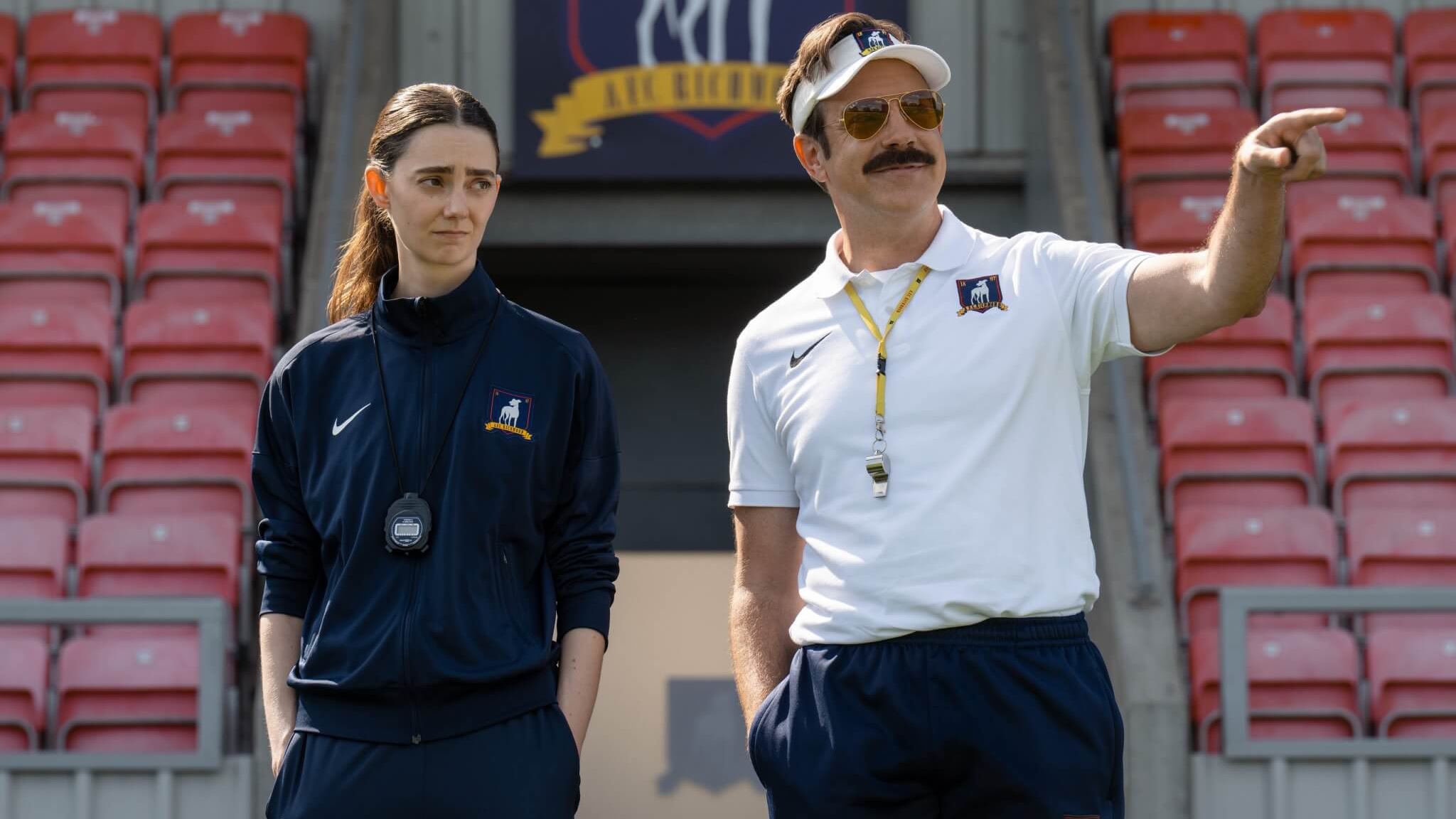Microsoft, Justice Department Spar over Apple-FBI Case
Microsoft's president came out swinging for Apple at the RSA security conference, while the Attorney General questioned Apple's motives.

SAN FRANCISCO — Microsoft's president came out strongly in favor of Apple at the RSA security conference here yesterday (March 1), while the U.S. attorney general questioned Apple's motives in its ongoing fight with the FBI over iPhone encryption.

"When it comes to security, there is no technology as important as encryption," Microsoft President and Chief Legal Counsel Brad Smith said during the conference's first keynote address. "Despite the best of intentions, the path to hell starts at the backdoor. We need to make sure that encryption technology remains strong."
"I respect [Apple CEO] Tim Cook a great deal, and his views will be decided in court," Attorney General of the United States Loretta Lynch said in a discussion four hours later. But, she added, "Do we let one company decide this for all of us? We don't do that in any other area."
MORE: Apple vs. FBI: What's Going On and Why It Matters
Apple is refusing a court order to assist the FBI in unlocking an iPhone 5c issued by his employer to Syed Rizwan Farook, who with his wife Tafsheen Malik killed 14 of Farook's co-workers in San Bernardino, California, on Dec. 2, 2015. Microsoft plans to file an amicus brief on Apple's behalf.
"This was the most serious terrorist attack on U.S. soil since 9/11," said John Carlin, assistant U.S. attorney general for national security, during a forum yesterday about the Islamic State's use of social media. "The iPhone in this case did automated backups until Oct. 19. For that reason and others, we think there's information relevant to the case on that device."
In the rush for evidence following the attack, the FBI reset the password on Farook's iCloud account, ending any chance that the data on the iPhone could be backed up to iCloud. (Apple does not object to turning over iCloud data to investigators.)
Get instant access to breaking news, the hottest reviews, great deals and helpful tips.
Farook and Malik destroyed their personal cellphones following the attack, then were killed in a shootout with police, but not before Malik posted a pledge of allegiance to the Islamic State on Facebook.
Asked whether the FBI had waited for a case involving terrorism to use against Apple's encryption policy, Carlin denied it.
"This wasn't meant to be a test case," Carlin said. "We worked for a long time to see if there was a way we could do this without litigating it. The customer in this case [Farook's employer] has asked for our help. Has the customer asked Apple directly [for help], there would be no issue. Apple would have provided the help."
Unbreakable encryption on consumer devices and in commonly available communication software greatly worries the FBI and other law-enforcement agencies, who refer to their new inability to access data and transmissions as "going dark."
"Going dark is a very real threat to our law-enforcement mission," Lynch said. "Our obligation to victims and the public is to ensure that we've done everything to investigate terrorist attacks and criminal activity on American soil. Neither our technology companies nor their leaders have any sympathy for terrorists, but recent events have made clear that these stakes are not just theoretical."
Asked about Tim Cook's likening of the court order to "cancer for smartphones," Lynch said that she found Cook's assertion "surprising."
"We're asking Apple to do what it's done for years," she said. "And we have not had this parade of horribles that Apple is asserting [would happen]."
Apple's refusal to cooperate came after a federal judge, who had been asked by the FBI to order Apple to help unlock a drug dealer's iPhone, instead asked Apple in October 2015 whether it had any objections to complying with such orders. The judge's hesitation to invoking the All Writs Act, a 1789 law that gives judges power to compel parties in a case to turn over evidence, led Apple to question whether the application of the act was valid.
"Apple had promised to help us in that case," Lynch said. "Their positioning didn't change until the judge's request for their opinion became public. We had asked Apple to do what it's always done, which is to comply with the law."
In the opening keynote, Microsoft's Smith poured scorn upon the All Writs Act being applied in technology cases. He held up an antique adding machine dating from around 1911, when the All Writs Act was last amended.
"We do not need our courts to define 21st century technology with laws that come from the era of the adding machine," Smith said. "We need to stand up and be vocal. ... As an industry, we have a responsibility to help keep the public safe. That's one of the points that Apple is trying to make."
"We cannot keep people safe in the real world if we cannot keep them safe on the Internet," he added. "People will not use technology they do not trust."
Smith got a bit of support today (March 2) from an unexpected source — U.S. Secretary of Defense Ashton Carter. As an aside during a talk about a separate topic, Carter said he would not comment on the Apple case, but added that he was "not a believer in backdoors."
"Data security, including encryption, is absolutely essential for us" at the Department of Defense, Carter said. "We're four-square behind strong data security and strong encryption."

Paul Wagenseil is a senior editor at Tom's Guide focused on security and privacy. He has also been a dishwasher, fry cook, long-haul driver, code monkey and video editor. He's been rooting around in the information-security space for more than 15 years at FoxNews.com, SecurityNewsDaily, TechNewsDaily and Tom's Guide, has presented talks at the ShmooCon, DerbyCon and BSides Las Vegas hacker conferences, shown up in random TV news spots and even moderated a panel discussion at the CEDIA home-technology conference. You can follow his rants on Twitter at @snd_wagenseil.
 Club Benefits
Club Benefits





